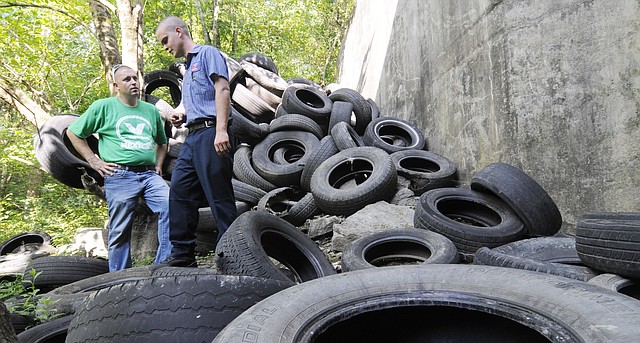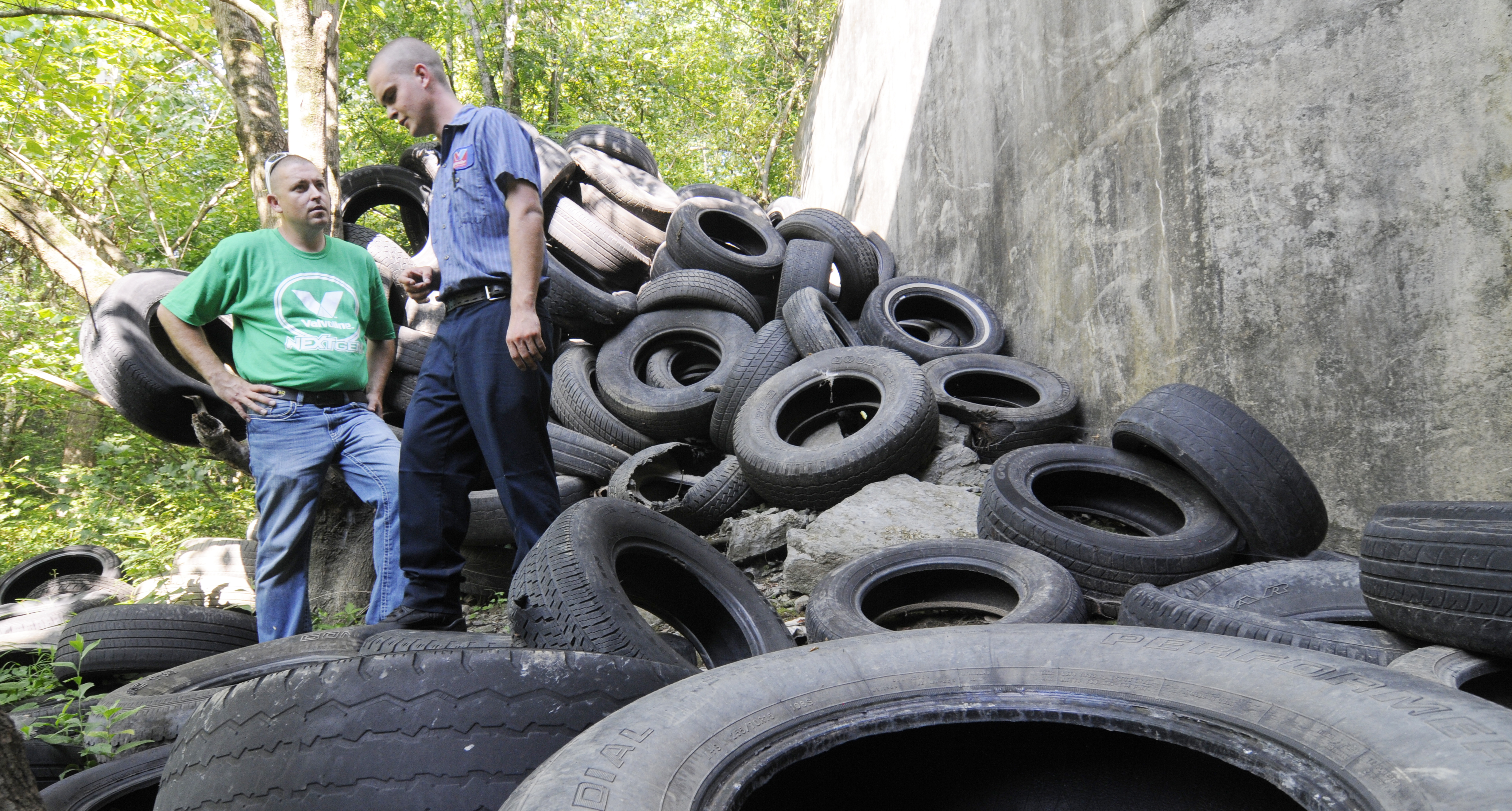Cleanup set after dumping in Chattanooga Creek
Saturday, July 23, 2011
Map
Chattanooga Creek
FAST FACTS• Tennessee law requires each county to provide one temporary waste tire collection site for citizens and tire dealers. Locally, it is at the Hamilton County Transfer Station, 7625 Standifer Gap Road.• Counties also are encouraged to develop programs to find beneficial reuses for waste tires, and counties that have beneficial use programs also must ban shredded tires from landfills.• State officials say illegally dumped tires not only mar the landscape, they also cause health and environmental hazards as breeding grounds for mosquitoes and habitat for snakes and rodents.Source: Tennessee Department of Environment and Conservation
Picture 600 tires dumped in Chattanooga Creek - the same creek that taxpayers and several companies spent about $30 million over the past decade to clean up pollution.
During the Superfund cleanup to scoop more than 100,000 tons of coal tar from the stream bed, workers also pulled out and hauled away thousands of pounds of old tires.
Now, more are there. Over the past several months, someone has been systematically dumping used tires in the creek at the bridge on Hooker Road.
"Are you kidding me? That's just disappointing," said Craig Zeller, who headed up the Superfund cleanup for the U.S. Environmental Protection Agency.
"I think we pulled out 25 tons of tires in the cleanup," he said, estimating that was the equivalent of more than 1,600 tires.
An investigation is under way, and on Tuesday volunteers from Chattanooga's Scenic Cities Beautiful and Valvoline Instant Oil Change Teams will work to remove the dumped tires.
Zeller was heartened to learn about the volunteers. He said they need not fear pollution in the area, where Superfund contractors lined the stream bed with impervious material to keep possible nearby coal tar and creosote from seeping into the creek.
"We've been monitoring, and the cap is holding," he said. "The biggest problems they'll have [are] the poison ivy, bugs and snakes."
Elizabeth Tallman-Gazaway, a South Chattanooga community organizer and development director for the Bethlehem Center, said tires litter the creek between Hooker and Workman roads.
"It is being investigated, and we're hoping the dumpers will be caught," she said.
On Friday afternoon, Dave Rednour and Seth Clemons visited the creek below the Hooker Road bridge to view the site and size up the work ahead. Rednour is Valvoline's Chattanooga-area manager, while Clemons is the East Ridge Valvoline store manager.
"It's a mess," Rednour said, swatting at mosquitoes and surveying two or three huge dumptruck-size piles of tires just below the bridge.
Looking at the scene, Clemons and Rednour speculated that the litterers used a dump truck and just let the tires slide off down the hill.
"It's probably a car body shop or mechanic shop, and they let the tires pile up at the shop for a while, then find a dark road that no people are on," Clemons said.
Rednour nodded.
"This seems like a really cool creek," he said.
On Tuesday, the volunteer cleanup team will have nine people, including all the Chattanooga area Valvoline store managers.
Mr. T's Interstate Tire Inc. has agreed to dispose of the recovered tires properly.
Tennessee environmental officials estimate that 5 million waste tires are generated annually in the state. But whole tires are banned from landfills, according to the website of the Tennessee Department of Environment and Conservation.
Consumers buying new tires at retail stores must pay a $1.35 pre-disposal state fee for each old tire in addition to a retailer-set recycling fee - usually between $1.50 and $4.
Rednour said Valvoline does many community projects, and this one will help green up both the community and the company's image.
"Our company slogan is 'Get caught doing something great,' and we're doing everything we can to reach out in the community. So we're happy to help with this," he said.
"We're used to changing oil and getting a little dirty," he added, "but we'll be bringing boots and gloves and insect repellent."

